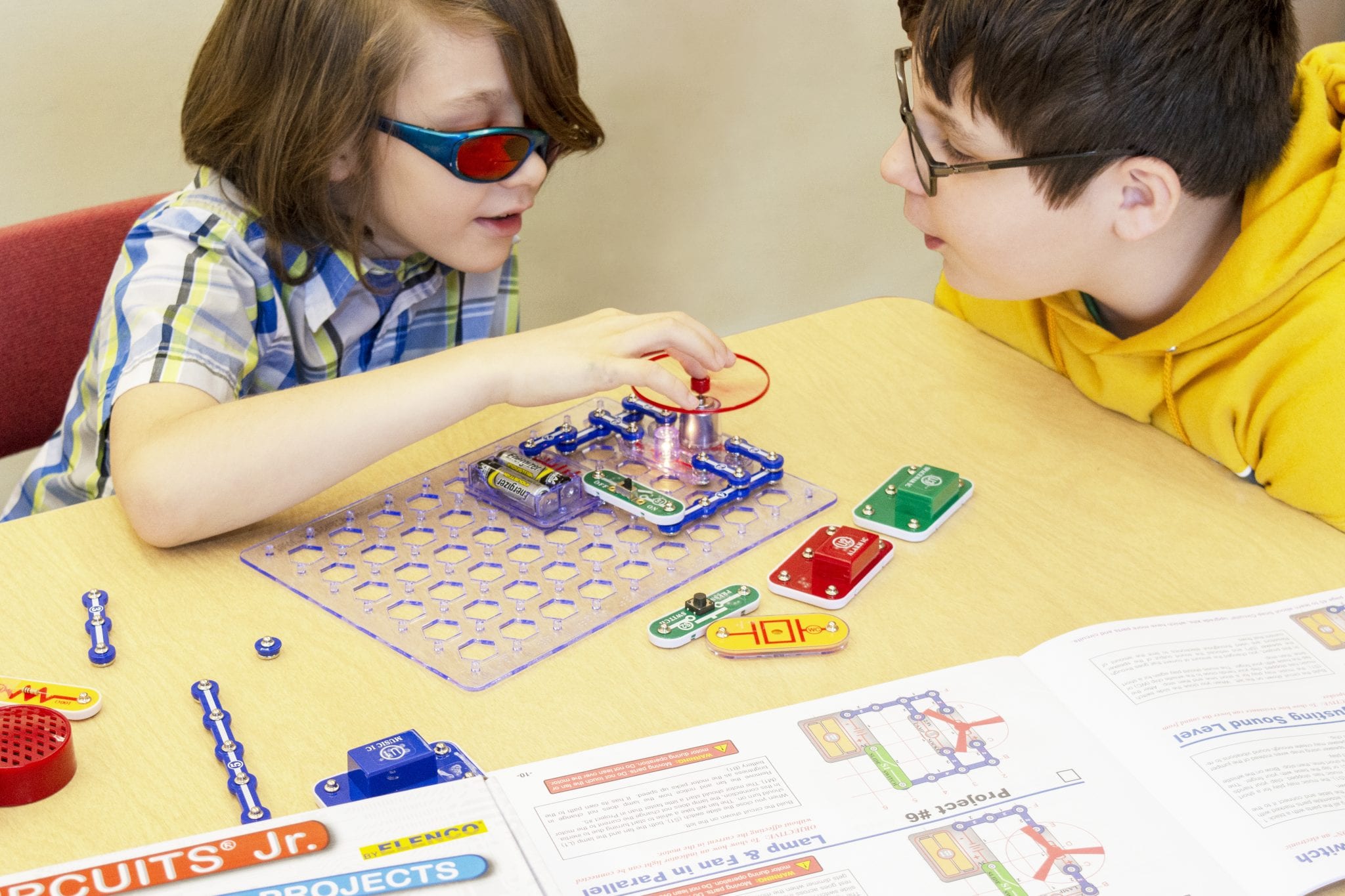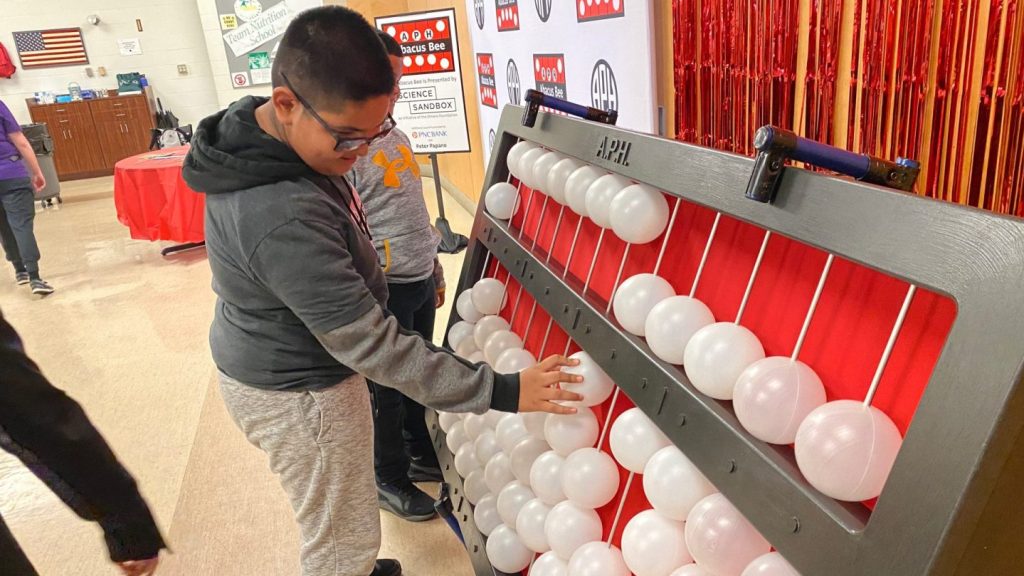10 STEM Products for Inclusive Classrooms

This blog was originally published in 2019 as “8 STEM Products for Inclusive Classrooms.” It has been updated to include two of our newest STEM products.
We’re celebrating National STEM Day by sharing some of our favorite STEM classroom tools with you. From protein synthesis to planetary exploration, let’s make sure all students have equal access to the STEM products!
Snap Circuits Jr. 130 Access Kit– Enjoy 29 new projects in the updated Snap Circuits Jr. Kit! This modernized kit also includes four circuit components not included in the commercially available Elenco® Snap Circuits Junior kit – green fan, battery holder, motor, and horn. Combine the Snap Circuits Jr® Access Kit with the BRIC: Structures® Access Kit, RC Snap Rover® and Snapino® Access kits for endless projects!
Submersible Audio Light Sensor (SALS) – SALS makes science activities more accessible than ever! This device has a plastic-covered glass tube with a rectangular box on one end. The tip of the glass tube detects light, and the box converts light to a tone and sends the signal to an app. SALS can be used in both liquids and air.
Sense of Science: Astronomy– The third module in the Sense of Science series is designed to make the world of astronomy accessible, understandable, and enjoyable for a broad range of ages and grade levels.
DNA Twist– DNA Twist is a model that demonstrates the structure of the DNA molecule in a way that is accessible to visually impaired students.
DNA-RNA Kit– An accessible, interactive model that demonstrates the formation of single and double strands of DNA, DNA replication, and transcription of DNA to messenger RNA.
Protein Synthesis Kit– An accessible, interactive model that allows students to decode a strand of messenger RNA with the genetic code and create transfer RNA molecules that bring amino acids in the correct order to form a protein.
Basic Science Tactile Graphics– Drawings depict objects, concepts, and relationships that are covered in nearly all elementary science textbooks. Instructional hints and suggestions are given for each tactile drawing.
Life Science Tactile Graphics– Depicts organisms, processes, concepts, and patterns that are typically covered in middle and high school life science courses.
Earth Science Tactile Graphics– Depicts processes, concepts, and structures typically covered in middle and high school Earth Science courses
Code Jumper– An accessible way for students to learn basic computer coding and programming skills through a unique, physical system.
For more great products that can help you celebrate STEM in your classroom every day, check out our Science, Health, Technology, and Engineering Toolkit and our Math Toolkit.
Share this article.
Related articles

Exploring the World of Adapted Physical Education: Enhancing Inclusivity for Blind and Visually Impaired Students: Overcoming Challenges and Addressing Concerns
Parents and physical education teachers may hesitate when it comes to allowing their child or student who is blind or...

What Does Accessibility Mean to You?
Have you ever considered how something that many people use every day, like a kitchen appliance, social media platform, or...

Testing Math Skills with the Abacus Bee
Created in China in 1200 C.E., the abacus is an ancient tool used by generations of mathematicians and students before...
